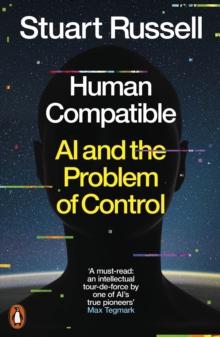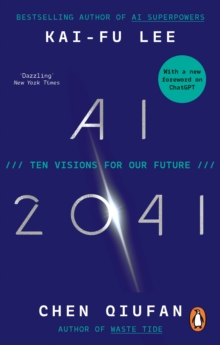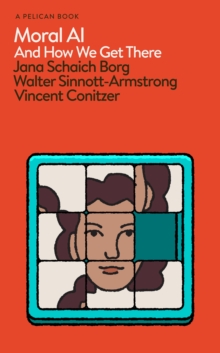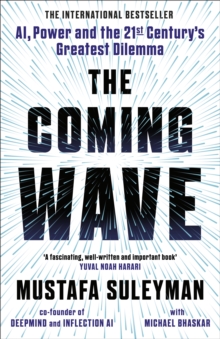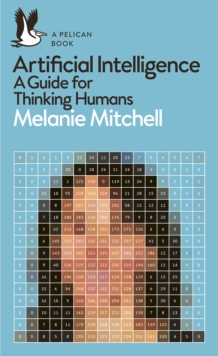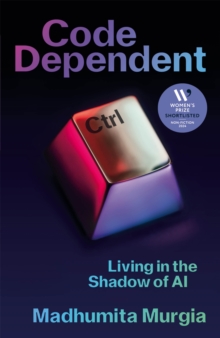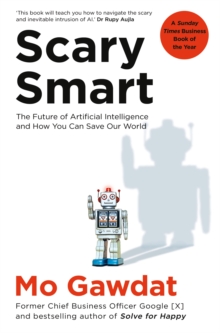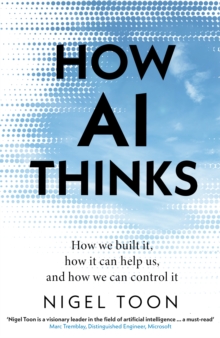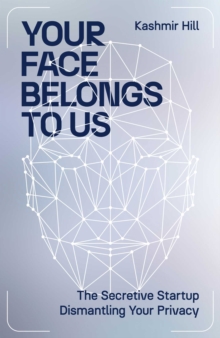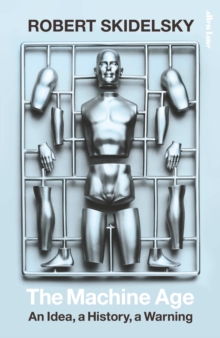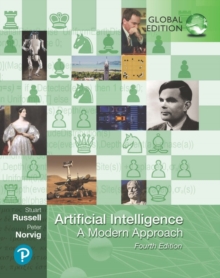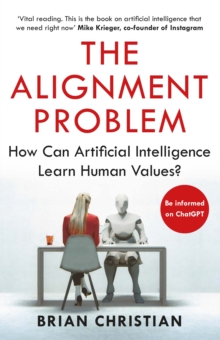Artificial Intelligence – Navigating the Inevitable
12th April 2024
From science fiction to reality, AI has dominated news headlines this decade. We’ve seen front-page features about royal photoshopping, film writers’ strikes in Hollywood, robots stealing our jobs, self-driving cars and early cancer detection devices. Artificial Intelligence is clearly on the rise, but these fast technological advances are enough to leave anyone confused. Imagine going back in time to the 1950s and trying to explain to somebody what AI is, it almost wouldn’t sound believable! It has certainly sparked debate and curiosity but what actually is it and what does it mean for our future?
What is AI?
Artificial Intelligence (or AI for short) is technology that enables a computer to think or act in a more ‘human’ way. AI isn’t all about robots and sci-fi takeover movies, it’s about complex systems speeding up the way we process information.
Like training a puppy to learn how to behave until it knows how to do it itself, AI is much the same. Computer systems absorb huge amounts of data and recognise patterns. These machines improve their ability to ‘learn’ from mistakes and change how they approach a task the next time they try it, instead of simply copying. This process is based on algorithms, which are a set of steps or instructions to follow to achieve a specific goal, just like following a recipe.
Where did AI come from?
In the 1950s scientists were teaching computers how to mimic human decision making, during which Alan Turing developed the Turing test. A human judge asks a computer and person hidden from view the same questions and the judge has to try and tell which answers came from the human. If the judge cannot tell them apart the computer is classed as intelligent, but so far no computer has come close to passing the test!
John McCarthy coined the term ‘artificial intelligence’ in 1956 at a brainstorming conference, during which scientists agreed that AI had a great potential to benefit human beings. The past 25 years has shown a surge in AI thanks to technological advances, but here’s the events that pioneered the way for Artificial Intelligence:
1942: Alan Turing uses AI to crack the Enigma Code during World War 2
1950: The Turing test, originally called the imitation game, is conceived
1956: John McCarthy coins the term ‘artificial intelligence’
1961: Unimate is the first industrial robot to work on a General Motors assembly line
1964: The creation of the first chatbot, Eliza, who can carry on a conversation in English
1969: Shakey the robot is built, with the ability to see, move and converse
1970s: The AI winter, millions is spent on funding AI but there is little to show for it
1997: Man vs machine, the super computer Deep Blue beats world chess champion Garry Kasparov
2002: The first robot arrives in our homes, Roomba, a vacuum cleaner
2005: War machines, such as PackBot the bomb disposal robot, are deployed
2010 onwards: driverless cars, real-time voice translation, Apple’s Siri, Xbox 360 Kinect (the first gaming device to track human body movement), ChatGPT and many more advancements!
AI in everyday life
Most of us use AI every day, often without realising it. Have you heard of Alexa or Siri, unlocked your phone using face recognition, received film recommendations on Netflix or had friends suggested to you on social media?
When we wake many of us reach for our phones or laptops, instantly plugging in to AI functions. It has become so natural to our daily routine that we remain unaware of both its impact and our reliance upon it. AI influences our decisions, planning and information seeking, the daily influence of AI is everywhere…
6am: you wake up, glance at your phone, which unlocks itself using facial recognition
6:45am: you ask Alexa to put on some music for the kids at breakfast
8am: you drive to work in your electric car, which alerts you to traffic, speed cameras and self-parallel parks
8:25am: you stop off at the supermarket before work, surrounded by security cameras programmed with facial recognition
9am: you start work, at the hospital, where AI is assisting in the analysis of scans, enabling more precise surgery
1pm: you proofread job applications for your next colleague, often written by ChatGPT, having already filtered out applicants using AI because thousands of people applied for one job
3:30pm: your phone pings, it’s the Amazon Ring doorbell, a package has been delivered to your doorstep… a mixture of a motion activated camera, heat sensor and radar detects a person is outside your property
4pm: you have a headache, which you log in your health tracking app, which in turn analyses your symptoms and gives health insights
4:30pm: you scroll through TikTok on your coffee break, you don’t need to tell TikTok your tastes or interests, it rapidly gauges this from your reactions and predicts which content will keep you engaged and which personalised ads will entice you to spend your money
6:15pm: you’re home, sending emails from your personal Gmail account, which has already prioritised emails in your inbox and drafted messages for you
6:30pm: you’re planning a family weekend break to Edinburgh, so you ask ChatGPT to recommend an itinerary
8:45pm: your online groceries delivery arrives; robots fulfilled the order whilst the driver was quick to adopt AI to optimise delivery routes
9:30pm: finally, it’s time to relax and watch Netflix, and you’re never short on something to watch as it throws recommendations at you based on the show you watched last night
Should we fear AI?
There have been so many misconceptions propagated in the media about AI and consequentially people are worried. Mostly about the unknown. Will AI take away our jobs? Does it work exactly like a human brain? Will it take over the world? Most of these myths can be debunked.
While AI has the potential to automate certain jobs (mostly the difficult, dangerous or monotonous ones), it is unlikely to replace all jobs. In fact, quite the opposite, it has the potential to create millions of new jobs too. It really does depend on the industry, jobs requiring creativity, empathy and human interaction are much less likely to be affected.
The notion that AI will become self-aware and take control of the world (many thanks to sci-fi movies like The Matrix, I, Robot and 2001: A Space Odyssey!) is far from reality. AI operates within the boundaries defined by its creators. It all comes down to how we as humans develop, implement and regulate it.
During the early 2000s we were tiptoeing around the internet, fretting about how it might transform everyone and everything… little did we know that years later we would be scrolling through endless cat reels on Instagram. It highlights an important lesson about human nature, we often resist change even when it has the potential to transform our lives for the better.
Is AI ethical?
AI is powerful. It is also relatively new. These two things combined make an ethical quagmire. Not only does it encompass the moral behaviour of the humans involved in designing, creating and using AI systems, but also the behaviour of the machines themselves. Significant ethical challenges include:
Privacy – how these systems handle our personal data and surveillance
Bias – we need to address bias in the algorithms and be aware of any discrimination
Accountability – we need to take responsibility for AI systems, they need to be auditable and traceable
Transparency – ensure decisions are clear and compliant with regulations
Human judgement – guarantee that AI systems do not supersede human responsibility
Legislation – to put in place official procedures and regulations to safeguard human values
In 2015 Stephen Hawking, Elon Musk and dozens of experts signed an open letter calling for more research on the impacts of AI. In consequent years the first global AI Safety Summit was held in the UK along with a petition of over 1,000 signatures (including Elon Musk, Steve Wozniak and other tech leaders) calling for a 6-month halt on producing AI systems which was referred to as ‘an out-of-control race’ as we cannot ‘understand, predict, or reliably control’ it. UNESCO is at the forefront of promoting ethical standards and adopted a framework with recommendations on the ethics of AI.
Is AI having an impact on children’s wellbeing?
Gen Z and Gen Alpha are encircled by artificial intelligence. Their values, ways of thinking, and moral codes are all shaped not only by their parents or immediate caregivers but also by the technology that is ever-present in their daily lives.
The impact AI has on children is complex, it ranges from huge educational benefits to extensive privacy concerns. As AI collects vast amounts of data about us, often without our knowledge, it contributes to a child’s digital footprint. Children could also form emotional connections with these systems, potentially overshadowing human relationships and hindering social skill development. They can also, unknowingly, expose children to bias and stereotypes as AI reflects existing data and existing prejudices. So many toys now connect straight to the internet (many marketed as educational toys) and worryingly they can collect data, such as conversations with the toy, setting off alarm bells around privacy, manipulation and surveillance.
It's common knowledge that younger generations are absorbed by social media. Too often we are measuring ourselves against AI images, which can spiral into comparison and depression.
We are, however, progressing in this territory, within the past 12 months companies have created a child-safe ChatGPT which generates only age-appropriate responses. Ultimately, at the moment, the onus is on the consumers to check these products and applications before using. The question of AI’s impact on children lies in how the technology is used to add benefit and value instead of becoming a replacement.
Personal interest in AI
I am a huge fan of Steven Bartlett’s podcast ‘The Diary of a CEO’. Along came his newest episode, with the best clickbait title I’ve seen ‘EMERGENCY EPISODE: Ex-Google Officer Finally Speaks Out On The Dangers of AI!’… Steven Bartlett put out a disclaimer saying this is probably the most important episode he’s ever recorded. His guest was Mo Gawdat. Who actually I had known from his mission to help one billion people become happier, spreading the message that happiness can be learned and shared. Truly inspiring, uplifting and mood boosting.
This, on the other hand, was almost an uncomfortable listen. His background in AI after working at Google X is captivating. He proclaims AI is the most existential challenge humanity will face. Arguably, if we don’t take action now in the infancy of AI development it may become too powerful to control. Our world is ethically complex and, quite interestingly, he compared raising our own children and preparing them to face our complex world to how we can prepare machines. Quite simply we don’t know what situations they will face. A thought-provoking listen which enthused me to pick up his ‘Sunday Times Business Book of the Year’ title Scary Smart. His knowledgeable tone makes you trust his expertise as he gently navigates the reader towards safeguarding ourselves and the planet. Truly an educating and clarifying read.
The future of AI, should we embrace it?
AI is making significant strides at a blazing-fast pace! It is impacting nearly every industry and holds immense potential. Who knows what the future holds, will we see flying cars? Intelligent machines turning against us? Be living in a Big Brother-esque world surrounded by surveillance? No matter our take on it, AI is here to stay and it would be short-sighted to ignore the many amazing ways AI could actually improve our society. Innovation and development is not something to dread.
We must remember that AI is both exciting and powerful, but we must use it responsibly. AI is our digital friend, making life more exciting and efficient! As we embrace it we need to ensure it serves humanity, respects privacy and remains transparent. The truth is, should we fear AI or should we fear our own human intelligence?
Lastly, did I use ChatGPT to write the whole of this blog? I’ll let you use the Turing test to decipher for yourself.
AI fun facts!
1. In Saudi Arabia “Sophia” the social humanoid became the first ever robot to get citizenship in any country in the world.
2. Most AI bots are female. Studies have shown that the population prefer the female voice. Take Siri and Alexa, for example, they answer your question in a pleasant and polite woman’s voice.
3. The AI market is worth a LOT. It is estimated that AI will contribute $15.7 trillion to the global economy by 2030.
4. Artificial intelligence can predict earthquakes, volcanic eruptions and many other natural disasters.
5. Chinese scientists created AlphaDog, a robot dog that is not only a pet, but could also assist with daily tasks.
6. Since 2020 there have been robots developed that can detect when they’re in “pain” i.e. damaged – which makes them aware they’re in need of repair.
7. RIBA (Robot for Interactive Body Assistance) is a robot used in hospitals to care for patients who need assistance with moving in and out of bed, standing up and turning in the bed. This relieves staff to carry out other tasks.
8. AI has shown to be better at detecting breast cancer than two radiologists, halving the human workload.
9. AI is the new electricity. When electricity was introduced to the world it changed everything. AI is clearly in line to be the next big thing and transforming most aspects of our lives.
10. In Hollywood and other similar industries artists were pitted against robots in a battle over human creativity. During the 148-day strike screenwriters secured significant guidelines over the use of artificial intelligence over fears that chatbots would take over their jobs.
AI Glossary
Alexa and Siri – a voice service that can reply to queries, perform tasks and provide entertainment and information
Algorithm – a process or set of rules to be followed by a computer
AI Safety Summit – international conference discussing safety and regulation of artificial intelligence
Amazon Ring doorbell – a doorbell that has a built-in camera that allows you to see a live video feed of what is happening at your front door at any given moment
Artificial Intelligence – development of computer systems to perform tasks normally requiring human intelligence, often referred to the acronym AI
ChatGPT – is an AI assistant where you type in what you want it to do and it will carry on the conversation with you
Clickbait – a text or image that is designed to attract attention and entice users to follow that link
Deep Blue – a chess-playing computer system
Enigma code – a device used by the German military to send strategic messages before and during World War Two
Face Recognition – identifying or confirming an individual’s identity using their face
Gen Alpha – generation of people born between 2010 and 2025
Gen Z – generation of people born in the late 1990s and early 2000s
Gmail – an email service provided by Google
Instagram – a photo and video sharing social networking application
Podcast – a digital audio file made available on the internet, usually part of a themed series
Photoshopping – alter a photographic image digitally
Reels – a short, entertaining video on Instagram
Sci-Fi – shortened version of Science Fiction, a genre of fiction that depicts science and technology as part of its plot
TikTok – a social media application that allows users to make and view short videos
UNESCO – The United Nations Educational, Scientific and Cultural Organization
Laura, Content Selection Team
Learn More About AI
See More